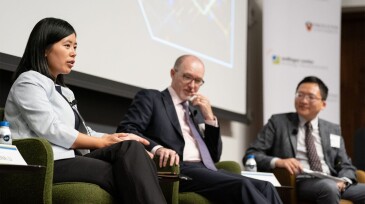Digital Transformation
Digital transformation in oil and gas depends less on adopting advanced technologies and more on maturing data so people and processes can reliably convert raw information into aligned, asset-level value.
Agentic AI can enhance subsurface workflows when its autonomy is deliberately designed around physics, data integrity, and accountable decision-making through architectures that separate reasoning, computation, interpretation, and validation.
Mark your calendars for the first SPE Live featuring the 2025 TWA Energy Influencers.
-
Subsurface modeling and history matching are critical steps for driving decisions. Generative artificial intelligence can support these efforts by incorporating various sources of information and allowing for low-dimensional parameterization for history matching.
-
Join TWA Editorial Board member Mani Bansal as he interviews Ashish Fatnani, an industry professional with 12 years of experience working for companies including Halliburton, ONGC, and Mercedes Benz.
-
The SPE Gulf Coast Section Data Analytics Group and Fervo Energy invite you to participate in the Machine Learning Challenge 2025 on 21 March.
-
The portal includes SPE resources like OnePetro, PetroWiki, JPT, Energy Stream, and SPE journals which can be easily searched using i2k Connect's AI-driven technology.
-
Experts from various fields met to discuss the role of AI in the energy transition and its challenges including high energy consumption and carbon-intensive infrastructure requirements.
-
Join TWA Editorial Board member Md Imtiaz as he interviews ONGC’s Western Offshore Asset Executive Director Ravi Shankar.
-
As video game technology has evolved, so have the ways in which this technology can be used in the oil and gas industry.
-
Five key themes to AI's success including standardization, automation, integration, scalability, and continuous improvement can provide a clear roadmap for effective AI deployment, addressing challenges and driving sustainability across the subsurface energy sector.
-
Tune in 28 October for a discussion with SPE Technical Directors about the future of data science for professionals in the energy sector.
-
Prajakta Kulkarni, SPE, has spearheaded the development of a global digital platform to optimize pricing, strategy, and sales in the industry. With a background in petroleum engineering, she identified a digital gap in the industry, leading her to create a platform that enhances data-driven decision-making, streamlines operations, and integrates AI technologies to imp…












